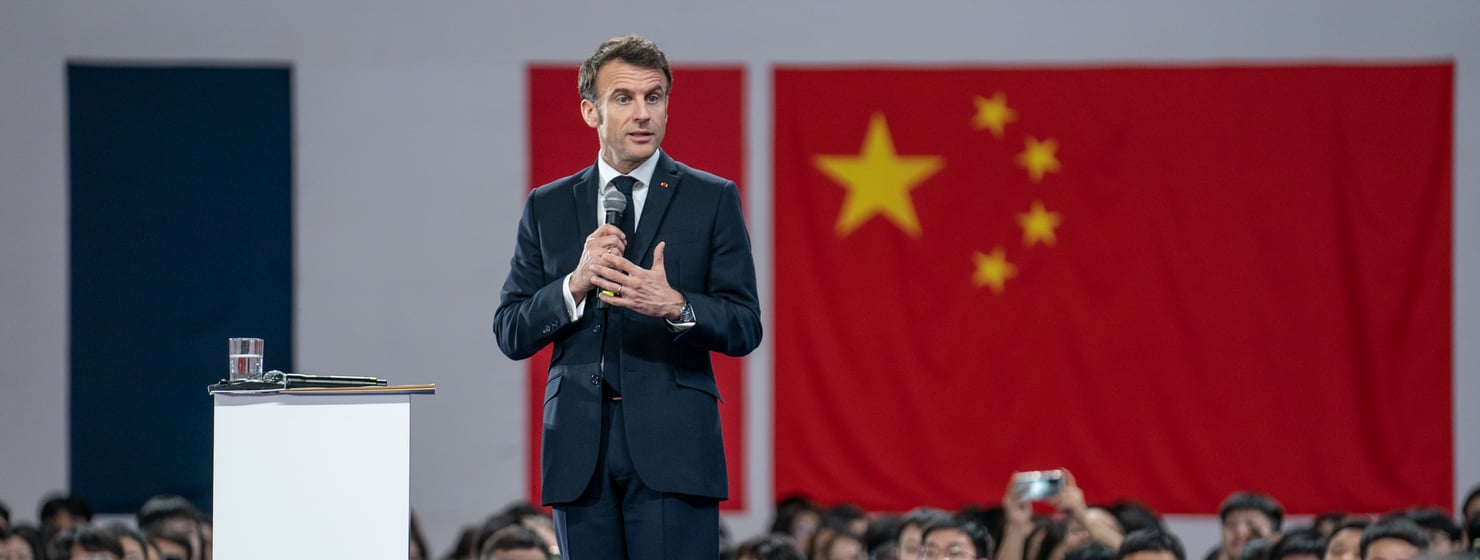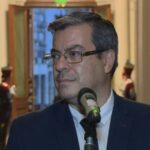
Statements by Emmanuel Macron upon his return from China in which he advocated greater independence from the United States and which suggested that Taiwan is not his problem shocked American and European official sources.
“The worst thing would be to think that we Europeans should be followers of this issue and adapt to the American rhythm or an exaggerated Chinese reaction”, was precisely one of the shocking phrases of the French president, in an interview with the Politico portal and the newspaper Les Echos.
“If there is an acceleration of the conflict between the two poles, we will not have the time or the economic means to finance our strategic autonomy and we will become vassals, and we can be the third pole if we want to have a few years to build it”. The strategic autonomy to which he refers is basically a European defense, without the American intermediary.
According to the French newspaper Le Monde, the speeches caused shock in the United States.
“Despite the talks between Washington and Paris that preceded the French leader’s trip to Beijing, the tone of his statements shocked experts and various official sources,” says a report published on Wednesday.
“First, because they perceived a form of ingratitude towards the United States, which provided 35 billion dollars of military assistance to Ukraine, while that country does not concern their vital interests. Then, because Macron seems to be operating a reversal of responsibility, blaming the Biden administration for rising tensions with China,” he explains.
The French newspaper highlights the reaction of conservative American congressmen, such as Republican Senator Lindsey Graham of South Carolina, who posted on Twitter: “President Macron has shown strong leadership, particularly in Africa. However, when it comes to China and Russia, he engages in a position of weakness and does not understand what Russia and China prepare for the planet”.
He also mentions the criticisms of Republican Senator Marco Rubio, from Florida. “In reality, when Macron became a superpower and sent troops to Africa to fight terrorists, he didn’t even make it there, we had to fly them back and forth.”
In Europe, the reactions were not the best. “We hear politicians in both the United States and Europe speak of deception, shame, betrayal,” reports the Deutsche Welle channel.
“Emmanuel Macron’s words were met with more criticism than support in most European capitals,” reports Maria Garcia Zornoza, German TV correspondent in Brussels.
Poland scheduled an official visit to the United States. “The widespread feeling is that Emmanuel Macron is going too far in defining the foreign policy of the 27 (members of the European Union), without being competent to do so”, he explains.
“The reality is that the 27 countries have very different views on how to approach China-US relations.”

“Here, there is a consensus that the European Union must be more independent from China, especially in relation to trade and technology; from Russia, in terms of energy; and also of the United States, in relation to its security and defense. Differences are on the way to consummate all these policies”, he contextualizes.
“The position of the head of state has the vocation to inflame European debates on the relationship with China, an ambiguous ally of Russia in its war in Ukraine, always enjoying dividing Europeans and Americans”, says Le Monde.
The newspaper highlights the various reactions of European parliamentarians who are critical of the French president.
“Macron managed to turn his visit to China into a communications operation for Xi and a diplomatic disaster for Europe,” said Norbert Röttgen, a German deputy from the conservative CDU party.
“With his conception of sovereignty, which he defines in opposition to the United States, more than through partnership, he isolates himself even more in Europe”.
Macron’s remarks will have a “lasting impact on France’s credibility in Europe. Once again, a correct strategic vision – Europe must build its own defense and become adult – is spoiled by narcissism and lack of coherence”, said Raphäel Glucksmann, Socialist MEP.
“Europe is building a strategic autonomy at the service of a common project, twin of French independence. With China, our vision is based on greater reciprocity, with ways to reach a new balance”, he published on Twitter on the 6th.
Europe is in the process of building a strategic autonomy in the service of a common project, the twin of French independence.
With China, our approach is based above all on greater reciprocity, with a view to achieving a new balance. pic.twitter.com/RINzQB94Gd
—Emmanuel Macron (@EmmanuelMacron) April 6, 2023
“The French position has not changed. France is not equidistant from Beijing and Washington. It is an ally of the United States, but it is not aligned”, defends the French presidency.
Amid the inter-Atlantic political storm against the head of state, Sino-French ties tighten in the economic field. Some of the country’s largest companies have signed new agreements to set up or expand their activities in China.
EDF, the French state-owned energy company, renewed a partnership with CGN, the giant Chinese nuclear power plant.
L’Oréal has won contracts with China’s Alibaba and the Shanghai cosmetics consortium to increase the presence of French startups in the city.
Airbus, the European aircraft manufacturer headquartered in France, has announced a new production line in China. The expansion should further distance it from Boeing, the American competitor.
Source: https://www.diariodocentrodomundo.com.br/ingratidao-traicao-fala-de-macron-sobre-taiwan-e-eua-choca-americanos-e-europeus/

